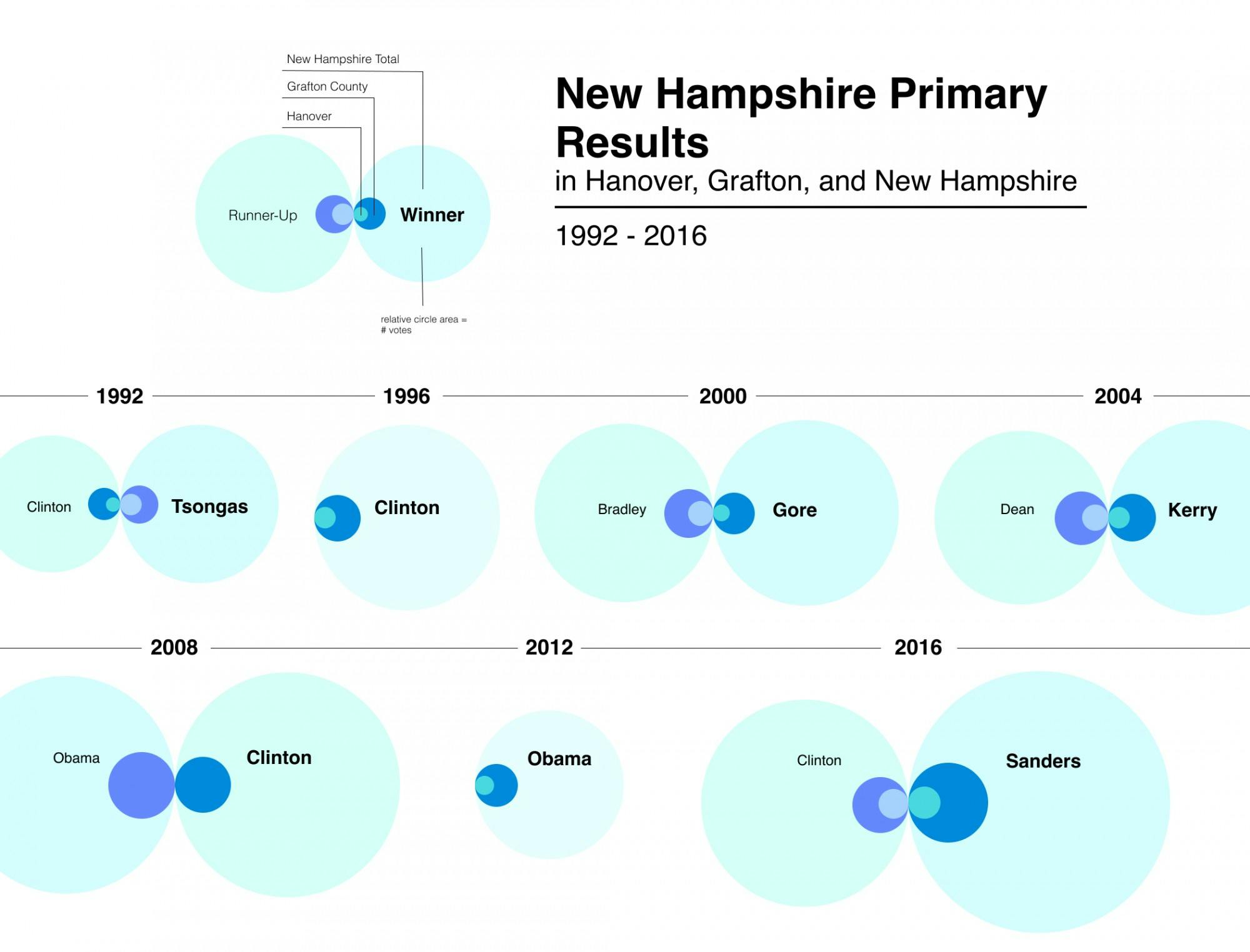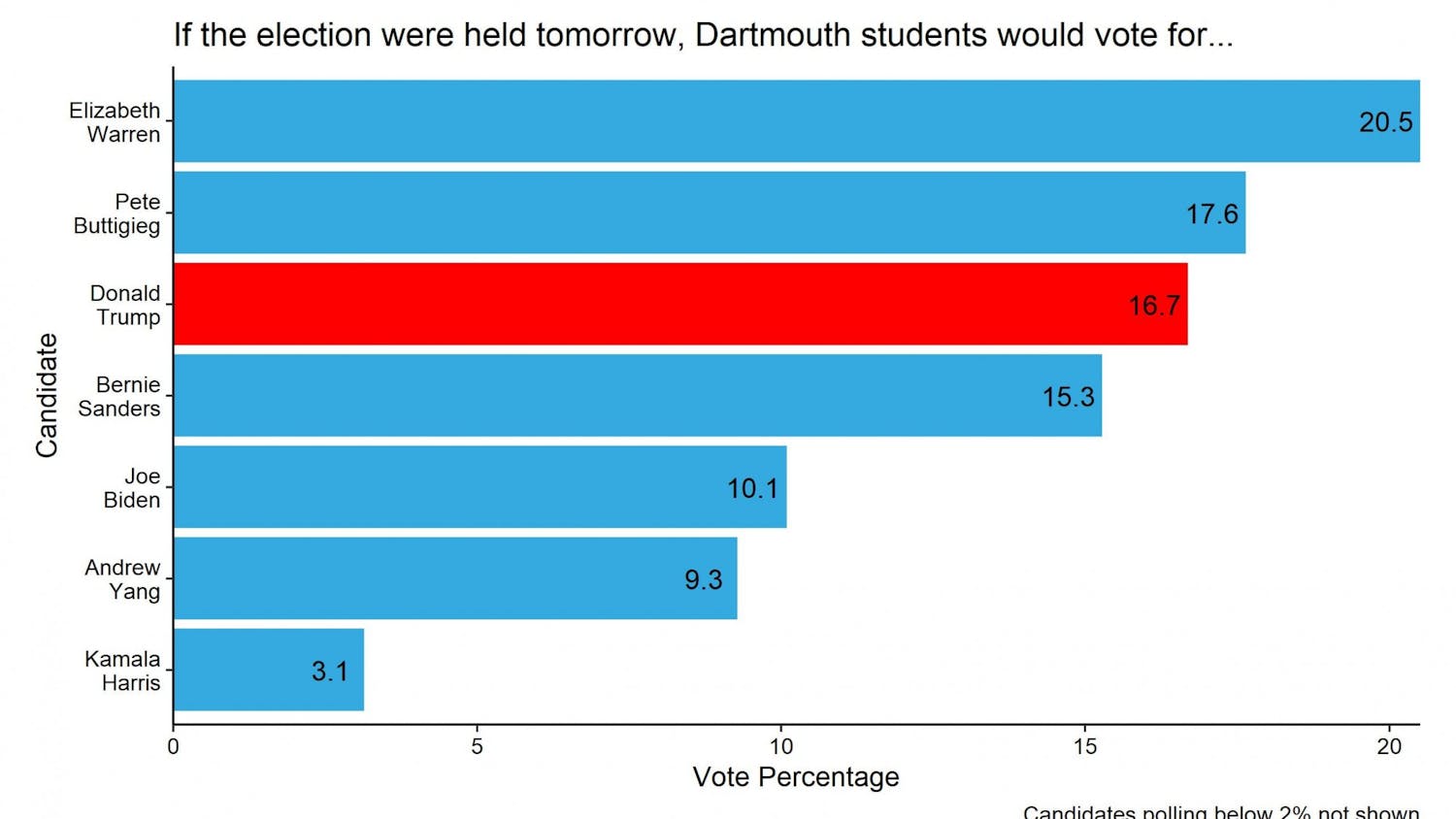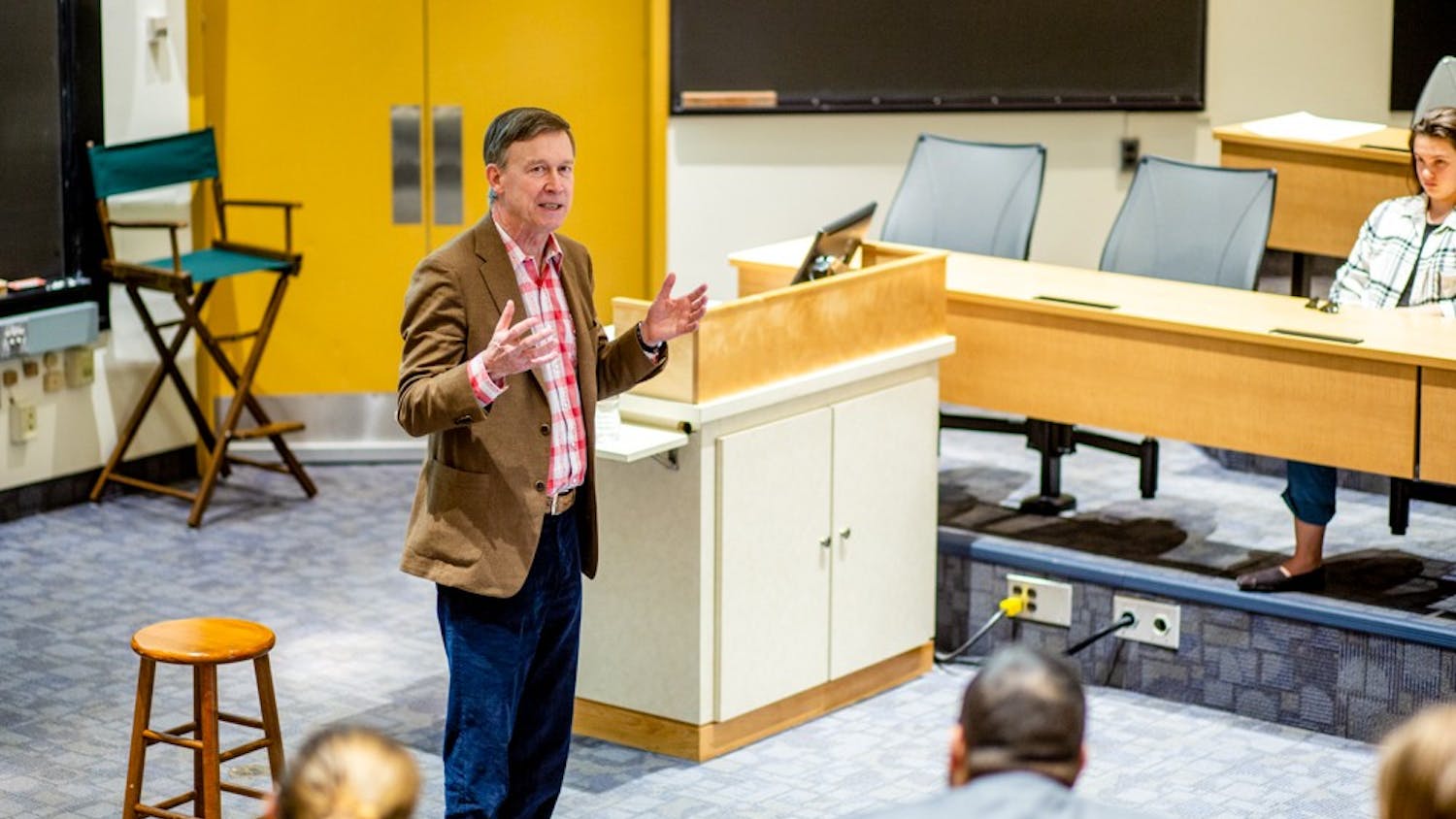For the past three decades, voters in Hanover and Grafton County have consistently cast their ballots for progressive candidates, a pattern that may continue when local voters participate in today’s Democratic primary election.
The over 6,000 undergraduate and graduate students at the College comprise a significant portion of Hanover — and the greater Upper Valley — electorate, a fact which is best exemplified by the constant cycle of 2020 hopefuls visiting campus over the last year.
In 2016, Sen. Bernie Sanders (I-VT) beat former Secretary of State Hillary Clinton statewide by over 50,000 votes. In Hanover, Sanders received 2,286 votes, versus Clinton’s 2,005. According to government professor Dean Lacy, Sanders’ notable success in 2016 can be attributed to his widespread name recognition in the area.
Lacy said that the voters in the section of New Hampshire which borders the Connecticut River, especially Hanover and nearby towns, tend to vote for more progressive candidates than voters downstate.
According to Lacy, downstate New Hampshire voters in Boston’s outer suburbs swing farther right than voters in the Hanover area.
“There is a sense that a lot of the downstate population are Massachusetts tax emigrants, meaning they have moved out of the Boston area to New Hampshire for no sales or income tax — they tend to be more conservative,” Lacy said.
Lacy said that outside of Hanover, towns along and near the Connecticut River have experienced job loss and suffered from the opioid epidemic, leading them to vote for candidates who are more willing to depart significantly from the status quo, whether it be a progressive like Sanders or an outsider like Trump.
“Places like Claremont have more in common with Midwestern Rust Belt cities than with Boston,” he said. “Sanders’ message of protectionism — not only of wages, but also of the environment — carries well up and down the Connecticut River.”
In addition to Sanders’ progressive appeal to those seeking job opportunities and reinvigorated local growth, Lacy said that Sanders may have appealed to Dartmouth students in past elections because of his consistent rhetoric.
“Younger and first-time voters see Sanders as someone who has been consistently on-message for 20 to 30 years,” Lacy said. “They see him as genuine and not as a pandering politician.”
New Hampshire state senator Martha Hennessey (D-Hanover), who has endorsed former South Bend, IN mayor Pete Buttigieg, said she would not be surprised if Sanders won again in her district –– which encompasses Hanover and runs alongside New Hampshire’s border with Vermont.
Hennessey said that she thinks Tuesday’s primary will be more competitive in Hanover than it may have been in the past. Lacy said that Sanders’ campaign infrastructure from his 2016 run has made it easier for him to galvanize financial and political support in New Hampshire this year, and Lacy predicts he will win again.
Lacy said that though progressive Sen. Elizabeth Warren (D-MA) may also benefit from name recognition in the 2020 primary, hers will be less than Sanders’ for two reasons. First, Sanders benefits from having run in the last presidential primary. Second, Warren’s home state borders southern New Hampshire regions, which Lacy said are populated by white-collar workers less likely to choose Warren’s progressive platform.
Looking back in time to 2008 and earlier, similar patterns emerge in Hanover’s electoral history. In 2008, when Obama won in Grafton County but lost the state to the more moderate Hillary Clinton, it may also have been because of Grafton County’s tendency to swing farther left, Lacy said.
“Grafton County is an interesting mix of affluent liberal and middle-class liberal,” Lacy said, referring to the well-educated, largely progressive voters who work at the College, Dartmouth-Hitchcock Medical Center and local financial services companies, and blue-collar liberals who look to progressive candidates like Sanders or Obama for opportunity.
In 2004, Lacy said former Vermont Gov. Howard Dean (D) took the local win over former Sen. John Kerry (D-MA) due to his name recognition and progressive policies. However, Lacy said that the more moderate Kerry won New Hampshire due to his success downstate.
“When they vote Democratic [downstate], they tend to vote for more moderate candidates,” Lacy said.
In the upcoming elections, Lacy said moderate candidates, including former vice president Joe Biden, Buttigieg and Sen. Amy Klobuchar (D-MN), may pick up traction downstate include.
In both 2000 and 1992, Lacy said that Hanover’s pick in the Democratic primaries tended to be higher-educated candidates, such as Sen. Bill Bradley (D-NJ) who appealed to those with graduate or medical degrees.
“Bill Bradley was the Princeton-educated candidate of people with professional and graduate degrees,” Lacy said regarding the 2000 election, in which Bradley won Hanover by a large margin, but lost to former vice president Al Gore in the statewide contest.
In 1992, former Sen. Paul Tsongas ’62 (D-MA) also had more name recognition than Clinton in the state, which contributed to his wins in Hanover, Grafton County and the state of New Hampshire.
“Tsongas was like Bill Bradley — what I could call the preferred candidate of the college-educated,” Lacy said.
Hennessey also noted the influence that relatively high levels of education in Hanover has had on its consistent history of electing candidates who appeal to the college-educated. She said residents with higher levels of education and exposure to various backgrounds may be more inclined to tune into progressive issues such as gerrymandering, low tax revenue and troubled school systems.
“For those in Hanover and Lyme, big issues like climate change, environmental differences — they are making decisions in a different category than some of the others,” Hennessey said. “But those issues are really prime in almost every town I go to.”




